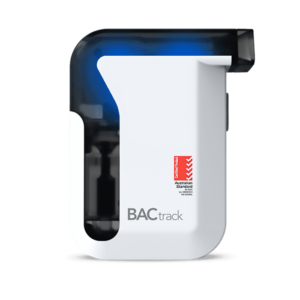Cocaine Effects: Immediate, Adverse, and Long-Term Effects
09 April, 2024

Cocaine is a highly addictive stimulant drug that can have immediate and long-term effects on the body. It speeds up the central nervous system, increasing alertness and energy. Immediate cocaine effects also include increased heart rate and blood pressure, dilated pupils and feelings of euphoria. On the other hand, long-term use or abuse can lead to anxiety, paranoia, psychosis, and other mental health disorders. It can also result in kidney failure, hypertension, and sexual dysfunction.
Understanding cocaine and its effects is crucial for individuals who may be struggling with addiction. Due to its adverse effects, the use of this drug is illegal in many countries, including Australia. Additionally, testing positive for cocaine can have legal consequences, such as drug driving. This may lead to fines, driving disqualification, and prison terms. In this article, we will explore the various reactions of cocaine to short-term and long-term use.
Immediate Effects of Cocaine Use
People take cocaine through snorting, smoking, or injecting them. Once ingested, it rapidly enters the bloodstream and travels to the brain. The immediate effects of cocaine can be intense and short-lived. Additionally, this may vary depending on the person and the amount of consumption. It may also depend on individual factors, such as body weight, size, and health.
Users commonly experience a surge of energy, confidence, increased alertness, and a euphoric feeling known as a “high”. However, these effects are often followed by a “crash” or feelings of depression and fatigue. Users may also experience irritability, anxiety, and restlessness during the comedown phase. It can occur days after the initial cocaine use.
Moreover, the physical effects of the drug can include increased heart rate, elevated blood pressure, dilated pupils and decreased appetite. In some cases, individuals may experience tremors, muscle twitches, and headaches. Overall, the short-term effects can be hazardous regardless of the amount of intake. It can affect both physical and mental health.
Early Signs of Substance Abuse
- Changes in mood or behaviour, including increased aggression or mood swings.
- Excitability, hyperactivity, or feelings of restlessness.
- Social withdrawal or isolation; keeping secrets from family and friends.
- Neglecting responsibilities or abandoning once essential activities.
- Physical changes like bloodshot eyes, weight loss or gain, or poor hygiene.
- Muscle twitches, slurred speech, or impaired coordination.
- Difficulty swallowing, hoarse voice, or sinus inflammation.
- Frequent nosebleeds or runny nose due to damage to nasal passages.
- Increased talkativeness.
- Risky behaviours, such as engaging in unprotected sex or driving under the influence.
- Memory loss and poor decision-making.
- Frequent absences at work due to health issues.

Adverse Effects of Cocaine Use
Adverse cocaine effects include both the physical and mental health of individuals. One of the most significant dangers of cocaine use is its highly addictive nature, which can quickly lead to dependence and substance abuse disorder. Additionally, the physical effects include irregular heartbeats and an increased risk of heart attacks.
Furthermore, cocaine use may lead to respiratory problems, including chest pain, difficulty breathing, or lung damage. It can also constrict blood vessels, leading to decreased blood flow to organs and potential organ damage. On a mental health level, it can trigger anxiety, paranoia, and even hallucinations. It can also exacerbate symptoms of pre-existing mental disorders.
Regular use may also build up a high tolerance to cocaine. It means that individuals may need to take larger doses to achieve the same high. Lastly, there is also a high risk of overdose, which can be fatal. Overdosing on cocaine can result in symptoms like seizures, stroke, or respiratory failure. Seeking help for cocaine addiction is crucial to prevent these harmful effects and begin the journey to recovery.
How Does It Affect the Mental Health?
Cocaine is a highly addictive drug because of how it works in the brain. It can have a severe impact on mental health. When a person uses cocaine, it floods the brain with dopamine. It is a neurotransmitter associated with pleasure and reward. With repeated use, the brain becomes desensitised to normal dopamine levels.
It often leads to a decreased ability to experience pleasure from usual activities. Hence, it can contribute to symptoms of depression and anxiety. Long-term cocaine use can also lead to changes in brain chemistry, affecting mood regulation and decision-making processes. It can also lead to feelings of loneliness and isolation.

Long-Term Effects of Cocaine Use
The long-term effects of cocaine include heart problems and damage to the cardiovascular system. It can lead to cardiovascular issues, including an increased risk of heart attack and strokes. Constricted blood vessels can lead to high blood pressure and even sudden cardiac death. Moreover, chronic cocaine use may cause arrhythmias and cardiomyopathy, which can result in heart failure.
Another long-term effect is damage to the respiratory system. Hence, this can cause breathing difficulty, bronchitis, and lung damage. Prolonged use may also result in cognitive impairments, memory loss, and issues with impulse control. Some people may experience loss of sense of smell due to damage of odour receptors from frequent snorting.
These effects can persist even after the individual stops using cocaine, making recovery challenging. Furthermore, individuals who struggle with cocaine addiction may face challenges in maintaining employment and relationships. Over time, it can affect their work performance, leading to less productivity and increased absenteeism. Overall, cocaine use can have devastating and life-altering consequences.
Possible Treatment Methods
For individuals struggling with cocaine addiction, seeking professional help is essential. There are various treatment options available, depending on the severity of abuse. One common approach is cognitive behavioural therapy. This treatment focuses on identifying triggers for drug use and developing coping skills to manage intense cravings and avoid relapse.
Detoxification is necessary in managing acute intoxication and withdrawal. It involves clearing toxins from the body to minimise harm. Furthermore, medications play a vital role in addiction treatment. Professionals can prescribe some drugs to help with withdrawal symptoms, cravings, and sleep disturbances. Counselling, support groups, and medication-assisted treatments can aid in successful recovery.
Conclusion
Cocaine is a powerful and dangerous drug that can have severe consequences in the short-term and long-term use. The immediate cocaine effects include increased alertness, energy, and euphoria. However, it is short-lived and often followed by a crash. It can also lead to increased heart rate, irregular heartbeat, and high blood pressure. Chronic cocaine abuse can cause cardiovascular and respiratory problems and kidney damage. It can also lead to mental health disorders, such as paranoia, anxiety, and hallucinations.
The short-term and long-term effects can have lasting impacts on various aspects of life. Individuals may exhibit dangerous behaviours, such as driving under the influence and other misdemeanours. It also increases the risk of accidents in the workplace. Thus, various institutions implement drug testing to identify potential hazards and take appropriate measures. Nevertheless, individuals seeking professional help is vital to overcome cocaine addiction.






























